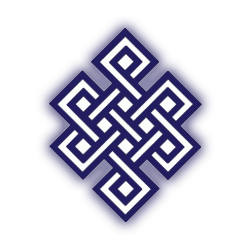I’m a perfectionist. One reason I don’t update this blog often enough to be interesting is that I loathe the idea of posting something that isn’t well thought out, perfectly constructed, footnoted and with references. I’m changing that habit because the point here is dialogue, not meticulous flawlessness. Right?
I’ve got a lot of things to talk about though, and it’s a shame to never bring up anything here because of my fear of being inadequate. Seriously: not helpful, Brain!
Today’s post is a short one anyway, mostly a happy-happy-joy-joy collection of thoughts on meeting Dr. Jerome McGann yesterday. He is a brilliant man and delightful person, and I was overjoyed (and honored) to sit next to him during dinner. We had a lovely discussion that went nearly two hours about too many topics to even remember, alas.
He was in town to give a lecture as part of a small symposium on “authenticity” and he spoke mainly to the issue of philology in regards to the study of texts and documents, from a digital humanities perspective. I am in no way prepared to relate what he actually said, but I did find it fascinating.
He encouraged me to write on the ontology of “everyday writing,” which to be perfectly honest is far outside of my abilities. I’m no philosopher, or student of literature. However I do think the issue is important for infosci professionals, as we are the librarians and archivists who classify objects, and create classification schemas, and then wonder why nobody uses them. Google built an empire by ignoring classifications completely (and it is arguable that Yahoo destroyed itself in part by trying to hew to them) and instead focused on “search terms.”
We were the FIRST searchers for terms. How did we get left behind? Why are folksonomies playing such a huge part in the future of metadata? Why people constantly reinventing the wheel?
In class the other day a professional state government archivist discussed her ongoing arguments with her cataloguer, and ended on a rant about how useless the Library of Congress standards are in her job of making information available. This is heresay; no doubt I’ll get a comment or two championing the necessity of the LoC subject heading listing. But while it plays a huge part on the back end, for the sake of infosci people organizing information, is it really doing anything for the rank and file researchers?
McGann’s concern with the ontology of “everyday writing” is academically sound, because an idea cannot be debated or studied if it remains an amorphous sludge of a concept. But the flip side, for archivists and librarians, is having a solid classification to use in order to sort and organize. We don’t really want to argue the deep, conflicted and complex meaning of the phrase. We want to slap a label on it and put it on a shelf. But there is no having one without the other; we cannot classify without understanding what is meant by the phrase, and humanities researchers cannot study the items in order to explore the definition if they cannot find the original material.
Which I think means, really, using “everyday writing” as an adjective; it is not something that is (a noun) but is an aspect of something — a state of being for it, rather than a definition of its nature. We tend to em-dash descriptions (“Writing—Romantic—British, 18th c.” or “Sculpture—British”) but we know better than most that even the most accurate classification doesn’t allow for adjectives or, indeed, multiple classifications. The reason tagging systems and broad search methods are so popular is because they work at delivering the information that people are searching for. While our profession is slowly embracing that reality, I don’t think we are grasping the full implications of it.
Try to properly process an archival item as an example of “everyday writing”. At this point, it cannot be done effectively in any finding aid I’ve seen, without resorting to tagging outside of the classification system. This isn’t an argument for standardizing tagging terms (although I see the value in that, it’s also an impossibility) but rather a question on how we, as infosci professionals, can define tagging as a critical component of information organization.
We cannot leave the adjectives behind.
#

